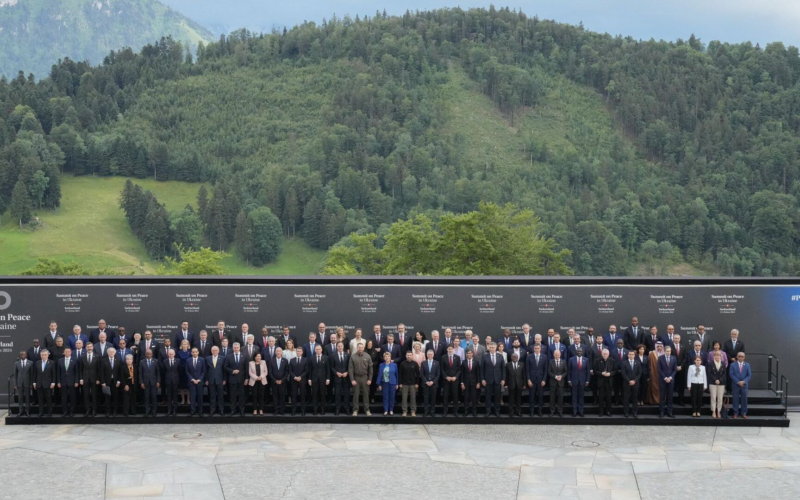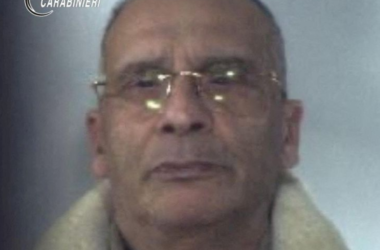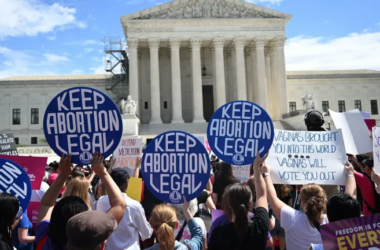The recent peace summit held in Switzerland concluded with a diverse array of outcomes and reactions from participating nations, highlighting both cooperation and discord among global stakeholders in addressing the Ukraine conflict.
Hosted over two days at the Bürgenstock mountain hotel near Lucerne, the summit garnered attendance from representatives of 93 countries and international organizations. The gathering aimed to formulate a unified approach towards achieving peace in Ukraine, amidst ongoing geopolitical tensions and the humanitarian crisis.
According to reports from Swiss authorities, the final declaration issued at the end of the summit received support from 80 of the participating states. Notably, six countries from the G20 group, including Brazil, Mexico, Saudi Arabia, South Africa, India, and Indonesia, did not endorse the communiqué. Their abstention underscored differing perspectives on the peace process and relations with Russia, a key player in the conflict.
The declaration, spanning just over two pages, addressed critical issues such as the condemnation of nuclear threats, the return of Ukrainian children from Russia controlled territory, and the imperative of ensuring unhindered grain exports from Ukraine. It emphasized the principles of sovereignty, independence, and territorial integrity as outlined in the United Nations Charter.
Despite the absence of explicit condemnation against Russia’s actions in Ukraine, the declaration stressed the need for continued dialogue with Moscow to achieve a sustainable peace solution. Ukrainian President Volodymyr Zelensky expressed optimism about convening a follow-up summit in the coming months, with potential interest from Saudi Arabia to host the next diplomatic endeavor.
Swiss Foreign Minister Ignazio Cassis emphasized Switzerland’s ongoing diplomatic engagements with non-attendees. “We have a working embassy in Moscow, and every two weeks, we communicate with Russia’s minister of foreign affairs,” he noted. “We also intend to discuss the results of this conference with Russia and other nations like China, who did not attend.”
Cassis highlighted the importance of including these countries in the conversation, acknowledging that a sustainable peace process would benefit from their involvement. He reiterated Switzerland’s view that excluding key stakeholders like Russia from peace efforts is “inconceivable.”
Switzerland hopes to engage Moscow constructively in future discussions. Swiss authorities have also suggested that President Vladimir Putin might be permitted to visit Switzerland for a second summit, notwithstanding the International Criminal Court’s (ICC) arrest warrant against him.
China, whose refusal to attend the Swiss summit was attributed to unmet conditions for its participation, has instead promoted its own peace initiative, developed in collaboration with Brazil, which advocates for a peace conference endorsed by both Ukraine and Russia.
European Commission President Ursula von der Leyen reiterated the prerequisite of Russia’s adherence to international norms, including the UN Charter, for its participation in future peace negotiations. Countries like Armenia, Bahrain, Thailand, Libya, the United Arab Emirates, Colombia, and the Vatican also refrained from endorsing the final document, highlighting geopolitical complexities and regional alliances.
Austrian Chancellor Karl Nehammer downplayed the significance of partial support for the declaration, attributing it to specific wording rather than a lack of commitment to peace efforts. He emphasized the summit’s role in initiating substantive discussions towards ending the conflict in Ukraine.
Ukrainian Foreign Minister Dmytro Kuleba acknowledged the summit’s progress in promoting a peace process, noting the awareness generated among absent nations about the summit’s outcomes. Swiss President Viola Amherd recognized the diversity of perspectives represented at the conference while affirming its role as a foundational step in diplomatic efforts for peace.
The summit also sought to broaden international involvement in peace initiatives beyond Western countries, engaging nations from South America, Asia, and Africa.
Kremlin spokesperson Dmitry Peskov emphasized that Russia remains open to dialogue with any countries willing to engage in meaningful discussions and will continue to communicate its stance to them. He suggested that holding such conferences without Russian participation was ineffective, given Russia’s central role in the conflict.
Russian President Vladimir Putin recently reiterated his readiness to end the conflict but conditioned peace on Ukraine’s renunciation of its NATO ambitions and the withdrawal of its troops from four regions that Russia claims to have annexed. These demands were swiftly rejected by Kyiv, which views them as unacceptable.
While the summit in Switzerland marked a significant diplomatic initiative, the varied support for its outcomes underscored the complexities and challenges in achieving consensus among global powers on the Ukraine crisis. The path forward hinges on sustained dialogue, adherence to international norms, and continued efforts to bridge geopolitical divides for the sake of peace and stability in the region.








